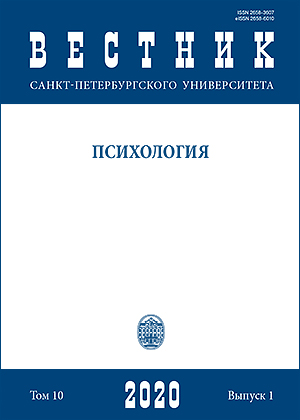Concerning the history of comparative psychology in Russia
DOI:
https://doi.org/10.21638/spbu16.2020.105Abstract
Psychology in the USSR was developing in relative isolation from international science. A substantial amount of research done by Soviet psychologists has remained unknown to the international scientific community, this especially concerns work performed since the 1930s. Scientists who worked during the first decades of Soviet rule had received their education in the pre-Soviet period. They knew foreign languages, and, for the most part, studied and completed internships in Europe, particularly in Germany. New generations that grew up under Soviet rule, in accordance with the Iron Curtain policy, were denied the opportunity to participate in international discourse. The development of Russian psychology in the war and post-war period led to the formation of a specific conceptual system, which is still a serious obstacle to the integration of the achievements of Russian science, since it requires not only language translation, but also hermeneutics. Nevertheless, there were original developments, mainly in the area of fundamental research connected with biological sciences, which still can contribute to international psychology. Such is the case with comparative psychology. This article dwells upon the history of research in comparative psychology in Russia; it expounds upon the specific character of the approach rooted in Russian science, and highlights the life and works of a number of prominent representatives of the Soviet school in comparative psychology (Ladygina-Kots, Fabri, Tikh) as well as research in the field executed by Pavlov.
Keywords:
historical development of comparative psychology, evolutionary psychology, anthropogenesis, human phylogenesis and ontogenesis, Activity Theory, psychology in Russia
Downloads
References
References
Downloads
Published
How to Cite
Issue
Section
License
Articles of "Vestnik of Saint Petersburg University. Psychology" are open access distributed under the terms of the License Agreement with Saint Petersburg State University, which permits to the authors unrestricted distribution and self-archiving free of charge.




